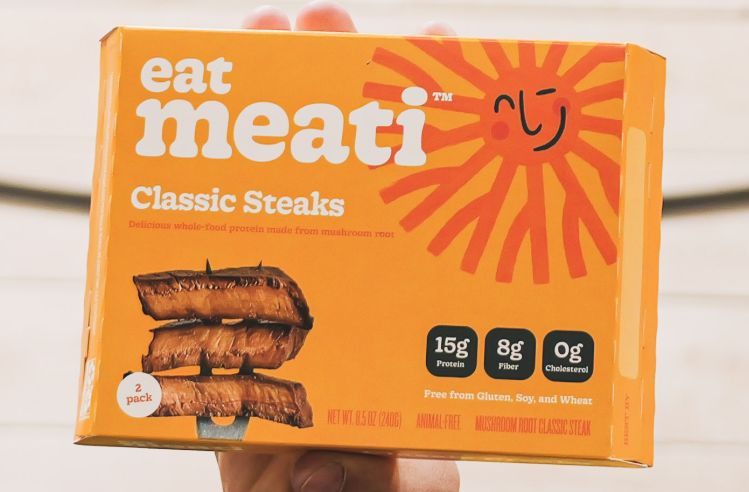Fungi-fueled startup Meati Foods has raised more than $100 million in a C-1 round led by Grosvenor Food & AgTech, and has also rolled out its mycelium-based steaks and cutlets into 2,000 Kroger outlets across the US, taking its store count up to 6,000.
The C-1 round, which takes Meati’s total funding to $365 million, was supported by returning investors including Prelude Ventures, BOND, Revolution Growth and Congruent, said cofounder and chief innovation officer Dr. Tyler Huggins, who is transitioning to an advisory role as new CEO Phil Graves takes over the day-to-day running of the business.
Graves, who most recently served as CEO at Wild Idea Buffalo Company, was announced as Meati’s new chief financial officer in early February in a LinkedIn post from Huggins. Two weeks later, he was announced as CEO following the departure of CPG veteran Scott Tassani, who served as president and COO at Meati for just over a year before moving to Treehouse Foods.
Under Graves’ leadership, Meati Foods will “continue the work to right size its workforce and accelerate the company’s path to profitability,” said the firm, which has engaged in a series of layoffs over the past year.
According to the company, Meati is performing well at retail, although the overall category continues to slide: “Up to 40% of Meati sales come from consumers purchasing animal-free protein for the first time, and repurchase rates are as high as 60%. The four SKUs in the Eat Meati product line are consistently among the top performers in the animal-free protein category overall and have helped grow the category for these leading commercial partners.”
Meati now has products in 6,000 locations across Kroger, Whole Foods Market, Meijer, Sprouts and Wegmans and others, with the goal of expanding into 10,000 locations before the end of the year.
Mycelium-based whole cuts
Founded in 2015 by engineers Dr. Justin Whiteley and Dr. Tyler Huggins, Meati is seeking to differentiate itself in the meat alternatives market with a fungi-based submerged biomass fermentation platform capable of producing whole cuts of alternative meat from mycelium.
The Boulder-based startup recently started production at its “Mega Ranch” in Thornton Colorado, which will ultimately be able to produce 40 million pounds a year (the equivalent of about 151 million 120g steaks).
According to Circana data crunched by 210 Analytics, US retail sales of meat alternatives fell 12% to $1.1 billion in the 52 weeks ending March 31, 2024 (total US, MULO, integrated fresh). Volume sales fell 16.3%. For context, fresh meat department dollar sales were up 1.1% over the same period with volumes flat at +0.4%.
Further reading:





